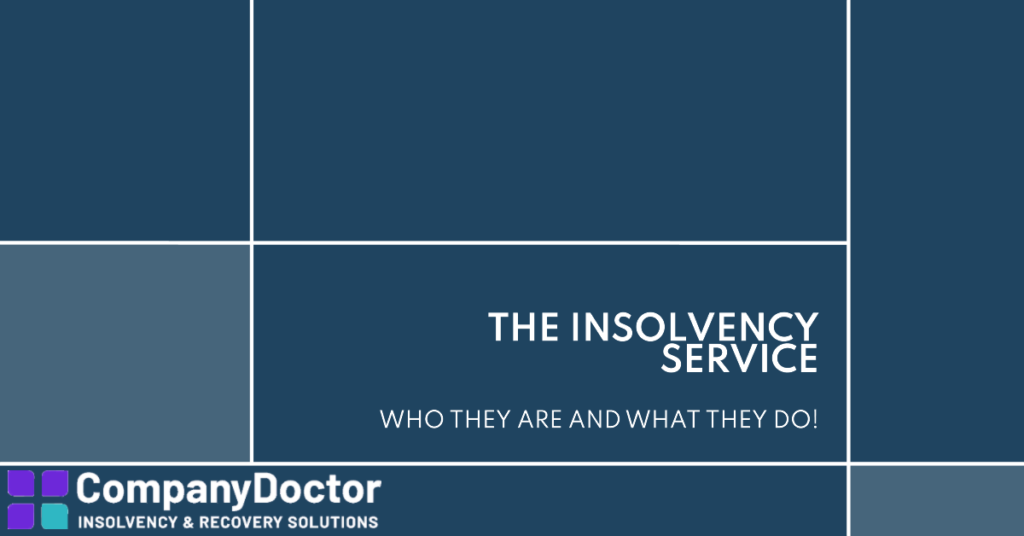Established by the UK government, the Insolvency Service is a public body that provides crucial services to those dealing with insolvency and bankruptcy.
The Insolvency Service plays a pivotal role in maintaining the integrity of the economic landscape by ensuring fair financial recovery for businesses and individuals alike. It operates under the jurisdiction of the Department for Business, Energy and Industrial Strategy and is governed by legislation relevant to England & Wales.
Whether you’re an individual struggling with debt or a company facing insolvency, the Insolvency Service provides a range of solutions designed to help navigate these challenging circumstances. In the following sections, we will delve deeper into the roles, responsibilities, and services provided by the Insolvency Service, shedding light on how it operates and the ways it can assist in times of financial distress.
Quick Links
Understanding the Role and Responsibilities of the Insolvency Service
The Insolvency Service is a government agency with a mission to provide a framework of support for individuals and companies facing financial difficulties. It plays a crucial role in the financial ecosystem, ensuring that insolvency and bankruptcy procedures are carried out fairly and efficiently.
Role of the Insolvency Service
The primary role of the Insolvency Service is to administer and investigate the affairs of bankrupt individuals and companies that have been wound up. It acts as a trustee or liquidator in cases where no private sector insolvency practitioner is appointed. This involves taking control of the bankrupt’s or insolvent company’s assets, selling them, and distributing the proceeds to creditors.
The Insolvency Service also plays a significant role in regulating the insolvency sector. It grants licenses to private sector insolvency practitioners, ensuring they meet the required professional standards. It also has the power to take disciplinary action against insolvency practitioners who fail to meet these standards.
Responsibilities of the Insolvency Service
The responsibilities of the Insolvency Service are wide-ranging and include:
- Administering Bankruptcy and Company Winding Up: The Insolvency Service handles the administration of bankruptcy orders and the winding up of companies. This includes selling assets and distributing the proceeds to creditors.
- Investigating Financial Misconduct: The Insolvency Service investigates allegations of financial misconduct by bankrupt individuals and directors of insolvent companies. This can lead to criminal prosecutions or civil actions to recover assets.
- Regulating Insolvency Practitioners: The Insolvency Service oversees the licensing and regulation of insolvency practitioners, ensuring they adhere to professional standards.
- Policy and Legislation: The Insolvency Service is responsible for insolvency policy and legislation. It works to ensure that the insolvency regime remains effective, balancing the needs of debtors and creditors, and maintaining public confidence in the system.
- Providing Public Information: The Insolvency Service provides information to the public about insolvency matters. This includes guidance on the insolvency process and how to make a complaint about an insolvency practitioner.
In the next section, we will explore the various services provided by the Insolvency Service and how they can assist individuals and companies facing financial difficulties.
Services Provided by the Insolvency Service
The Insolvency Service offers a range of services designed to support individuals and companies facing financial difficulties. These services are aimed at providing practical solutions, advice, and information to help navigate the complexities of insolvency and bankruptcy.
Debt Relief Order (DRO)
A Debt Relief Order is a form of insolvency that can help individuals who have a low income, few assets, and a debt of less than £30,000. The Insolvency Service administers DROs, which effectively freeze debt for a year, and if the individual’s financial situation hasn’t improved by the end of this period, the debts can be written off.
Individual Voluntary Arrangement (IVA)
An Individual Voluntary Arrangement is a formal agreement between an individual and their creditors to pay back their debts over a period of time. The Insolvency Service provides guidance and support for individuals considering an IVA.
Debt Solutions
The Insolvency Service provides information and advice on a range of debt solutions. These include bankruptcy, Debt Relief Orders, and Individual Voluntary Arrangements. The service helps individuals understand the advantages and disadvantages of each solution, enabling them to make informed decisions.
Debt Management
The Insolvency Service provides guidance on managing debt, including how to deal with creditors, how to prioritise debts, and how to create a budget.
Bankruptcy
Bankruptcy is a legal status that usually lasts for a year and can be a way of clearing debts you can’t pay. The Insolvency Service administers the bankruptcy process, providing guidance and support for individuals considering this option.
Freephone including all mobiles
Legislation Relevant to England & Wales
The Insolvency Service operates under a framework of legislation that governs insolvency and bankruptcy procedures in England and Wales. This legislation is designed to ensure that these procedures are carried out fairly and efficiently, protecting the interests of all parties involved.
The Insolvency Act 1986
The Insolvency Act 1986 is the primary piece of legislation governing insolvency procedures in England and Wales. It sets out the rules for declaring bankruptcy and winding up companies. It also outlines the duties and powers of insolvency practitioners and the Insolvency Service.
The Companies Act 2006
The Companies Act 2006 provides the legal framework for company insolvency. It sets out the procedures for winding up a company, including voluntary winding up by the company’s members or compulsory winding up by the court.
The Enterprise Act 2002
The Enterprise Act 2002 introduced significant reforms to insolvency law, including changes to the administration procedure and the introduction of the Enterprise Act bankruptcy regime. It also gave the Insolvency Service the power to disqualify directors.
The Insolvency (England and Wales) Rules 2016
The Insolvency (England and Wales) Rules 2016 provide detailed procedures for carrying out insolvency processes. They cover everything from how to apply for bankruptcy to how to distribute assets to creditors.
In the next section, we will look at some frequently asked questions about the Insolvency Service.

FAQs
What is the Insolvency Service?
The Insolvency Service is a government agency that provides services to those affected by financial distress or failure. It administers bankruptcy and insolvency proceedings, and acts as trustee/liquidator where appointed.
What is a Debt Relief Order?
A Debt Relief Order (DRO) is a way to have your debts written off if you have a low level of debt and have few assets. If you’re given a DRO, your creditors can’t recover their money without permission from the courts.
What is an Individual Voluntary Arrangement?
An Individual Voluntary Arrangement (IVA) is a formal agreement between you and your creditors to pay back your debts over a period of time. It must be set up by a qualified person, called an insolvency practitioner.
What is bankruptcy?
Bankruptcy is a legal status that usually lasts for a year and can be a way of clearing debts you can’t pay. When you’re bankrupt, your non-essential assets (property and possessions) and excess income are used to pay off your creditors (people you owe money to).
How can I contact the Insolvency Service?
You can contact the Insolvency Service through their website or by phone. For general enquiries, you can call the Insolvency Enquiry Line on 0300 678 0015.
What solutions does the Insolvency Service provide?
The Insolvency Service provides a range of solutions for individuals and companies facing financial difficulties. These solutions include Debt Relief Orders, Individual Voluntary Arrangements, and bankruptcy.
In the next section, we will look at how our company, Company Doctor, can assist you with insolvency issues.
Conclusion
Understanding the role and responsibilities of the Insolvency Service is crucial for anyone facing financial difficulties. As we’ve explored in this article, the Insolvency Service provides a range of services designed to support individuals and companies in such situations. From administering Debt Relief Orders and Individual Voluntary Arrangements to providing free debt advice and information on various debt solutions, the Insolvency Service plays a vital role in helping people navigate the complexities of insolvency and bankruptcy.
However, dealing with insolvency issues can be a daunting task, and professional guidance can make a significant difference. That’s where we, at Company Doctor, come in. As licensed insolvency practitioners based in Leeds, we offer advice and solutions to directors struggling with insolvent companies. We specialise in providing Creditor’s Voluntary Liquidations and are committed to helping you find the best possible solution for your financial difficulties.
Don’t let financial distress overwhelm you. Reach out to us today on 0800 169 1536 or leave an enquiry on our website. Let us help you navigate your way to financial recovery.
References
The primary sources for this article are listed below.
The Insolvency Service – GOV.UK (www.gov.uk)
Details of our standards for producing accurate, unbiased content can be found in our editorial policy here.

